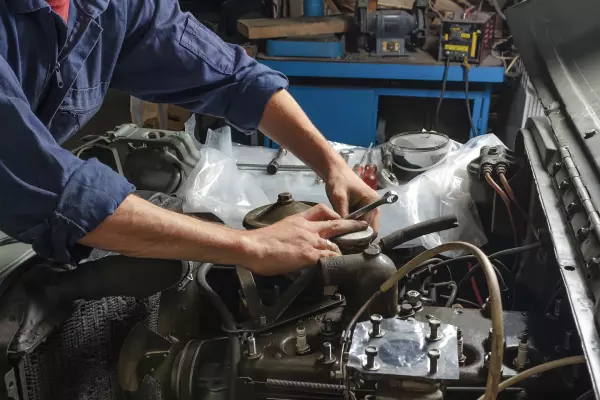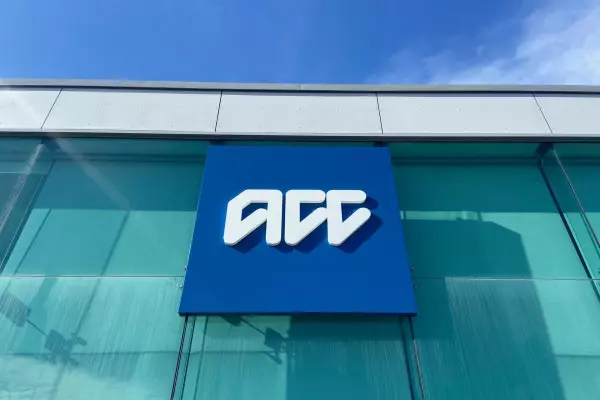BusinessDesk investments editor Frances Cook answers readers' questions about money each week. Below, you will find her expert advice. Send your own questions to [email protected].
Hi Frances,
Long-time listener and first-time caller!
We have two young children (6 months, and 2 years) and, after following you on Instagram, I have decided that I would like to start an investment account for them, for when they are older.
Currently, I’m on maternity leave and we don’t have a huge amount of disposable income, so I was thinking $5 per child, per week, with the intention of increasing it as our children grow up and we become more financially stable.
We would like the money to support them into their first home, so I was thinking about opening a KiwiSaver account for them – am I able to do that?
KiwiSaver makes sense to me as we have never invested money before, and we could leave it up to the Big Wigs to do the investing for us. The other positive about KiwiSaver is that it must be used on a first home, rather than the money going ‘up in smoke’ on their 21st birthdays (we’ve all been there!).
What do you think about this? Are there any other simple options you could recommend? I’m thinking that if we can afford $10 a week now, it could mean a lot for their future.
Thanks in advance for your time (and your advice and tips),
A
Hi Frances,
Love listening to your podcasts. Just listened to your latest on indexes. Very enlightening.
We have just had the arrival of our first grandchild. I want to set up something like a trust fund and wanted to know your thoughts on what the best bang for bucks kinda thing would be. I currently have investments in Sharesies and other shares outside of these.
I was thinking of setting up a payment into a managed fund, with an initial payment of, say, $500 and then an automatic $15-25 per week.
I'm interested, as I said, in your thoughts.
Thanks for your podcasts, they're awesome.
Best wishes,
C
Kia ora Frances,
I'm wondering what the best way is to put aside savings for a newborn baby. My initial thought was a savings account – easy and accessible (which could be good and bad). Then I wondered about KiwiSaver, as that could grow money faster.
I'm not sure what the pros and cons are for each scenario when it's such a different situation to my own money.
Cheers,
A
Hi A, C, and A,
Well, fair to say this is a topic on everyone’s minds! And you know what, I love to see it.
Helping set our kids up financially is not only a fantastic gift for them but can be quite easy because we have time on our side.
Something like $5 a week can set them up with a substantial nest egg when they’re older.
So, what are the best options?
Money timeline
When it comes to figuring out what you want to do with your money, one way to do it is by looking at your money timeline. How soon are you likely to need your money?
The following are some general rules of thumb that I find helpful.
1 year or less: cash savings account, or conservative KiwiSaver. This money won’t grow and will in fact slowly become less over time because of inflation.
However, this is a necessary sacrifice. It also won’t bounce up and down in value, leaving you at risk of not having the money that you need in the case of an emergency or something like a car repair.
2-3 years: term deposits, sometimes bonds, or a balanced KiwiSaver.
This one is a sliding scale of options. Term deposits earn less but are safer. Bonds have slightly more risk and earn slightly more.
They’re both considered financial products that will be on the safe side but ask you to lock your money up for the medium term, in order to make a bit more money from them.
5 years: investment property. Considered medium risk, medium return.
Although, depending on how you handle it, it can be highly risky. It’s not the slam dunk some people think, and also not open to the $5 weekly strategy, unfortunately.
5-10+ years: shares, or a growth KiwiSaver. This is money that will earn the most for you, but also needs the most time in order to do its thing.
Shares bounce up, down and sideways, and that’s actually how they make their money. You need to not chicken out and sit on the sidelines during a dip because buying companies when they’re going cheap is how you make those profits that you’re relying on.
When the economy recovers, so does your investment. It's important to have this in mind so that you're ready for the rollercoaster.
Investing for children
So, when we look at that timeline, we need to think about the fact that when investing for a child's future, you're likely looking at a 20-year timeline.
Then consider the fact that most people want to put in a little bit, often. So, shares or a growth KiwiSaver look like a really good option.
You have masses of time in order to let it tick along and earn more for the kids. They’ll end up with a nest egg that’s much more than what you put in, just by virtue of you sticking with it, and letting the share market do what it does.
You do want to make sure that you’re spreading money around the share market. When you invest here, you’re buying a piece of a business, and therefore getting a piece of the profits.
Businesses can, and do, go bust. But not usually hundreds of them at once.
That's why we money people tend to talk about the importance of investing in lots of places, not just in one company.
So, one excellent investing strategy is to pick something like an index fund or ETF, which automatically invests in many companies at once.
Funds like the NZX50 which invest in the top 50 companies in New Zealand, the S&P500 which invests in the top 500 US companies, or a global fund that invests in the top companies around the world.
That spreads out your risk while keeping you on board for the rewards.
Shares or KiwiSaver
One way to invest like this is by using KiwiSaver. A growth KiwiSaver will have the majority of its investments in shares.
However, there are some cons to be aware of.
For those who are under 18 (or over 65), they don’t get the big sweeteners that the rest of us do. There’s no government tax credit of $521.43 per year. There’s no employer match of their savings, even if they get a job as a teenager.
Their savings are simply locked away until they’re either 65 or buy a house.
Now, this may be appealing to you. As one letter points out, many of us could otherwise get to 21 and blow it all.
The flip side is, though, that you might raise a particularly entrepreneurial and motivated young 'un. If they want to use that money to start their own business … they can’t.
I suggest a different strategy.
You could look for something that gives them more flexibility. If you invest in an index fund or ETF, then you can get similar results to a growth KiwiSaver, while still having a choice about what to do with the money.
If you're overwhelmed by the options, you can also choose to get the best of both worlds.
Many of the KiwiSaver providers offer ‘mirror funds’. These are funds that operate exactly the same way as their KiwiSaver funds, and have the same investments, but operate outside of the KiwiSaver restrictions.
So, you're getting a wide spread of investments from a company that's gone through all the vetting processes needed to become a KiwiSaver provider, without having to leave it until kiddo turns 65 or wants to buy a house.
If you’d like an easy option, that could work well.
How to stop them blowing it?
Well look, there are no guarantees on that front. But there is quite a bit of research that we tend to blow what we see as “free money” (hello lottery winners who end up broke again). We're less likely to squander money that we feel we worked for.
So, when they’re old enough to understand, why not tell them about the fund you’re building up for them and get them to contribute to it as well?
Whether it’s from Christmas gifts or an after-school job, they can put in a little bit, too. They could even choose which investments they'd like to put their money towards if you've picked a fund with that sort of flexibility.
Then they get to learn how the share market works, see what’s happening with their investments over time, and feel ownership over the money that’s building up.
As I say, no guarantees it works. Kids love to foil our plans for them. But I think this plan gives them a good chance of doing well.
Send questions to [email protected] if you want to be featured in the column. Emails should be about 200 words, and we won't publish your name. Unfortunately, Frances is not able to respond to every email received or offer individual financial advice.
Information in this column is general in nature and should not be taken as individual financial advice. Frances Cook and BusinessDesk are not responsible for any loss a reader may suffer.














